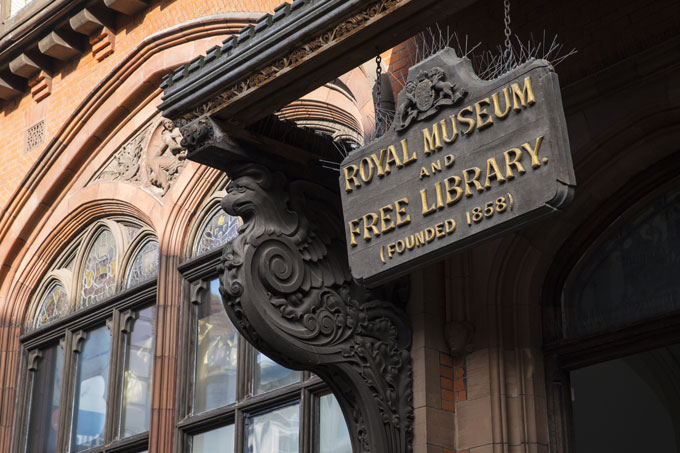Professor Carolyn Oulton explores the history of free public libraries and explains why we need to fight to keep them from being closed permanently.
Walking down Canterbury High Street, you may have seen the statue of Britain’s first professional woman author Aphra Behn, recently commissioned by the Canterbury Commemoration Society. What you may not know is that she is standing outside the oldest Free Library in the country.
The 1850 Libraries Act allowed councils to set up public libraries for the use of local people for the first time, paid for out of the rates. This innovative idea was surprisingly controversial and local authorities proved hard to convince. Nonetheless, Canterbury and Maidstone were early adopters, both inaugurating libraries in 1858.
Folkestone followed suit in 1879 – when borrowing was permitted from 1881, one councillor was convinced that ‘The books would soon be destroyed’. But the library was a success, moving to new premises on Grace Hill in 1888. MP Edward Watkin hoped in his opening speech that the library would promote ‘mutual respect’ and offer users ‘political education with respect to that most important question, the greater union of class with class.’ Significantly though the rules included, ‘No person shall be admitted who is in an intoxicated or dirty condition’.
Public libraries have come a long way since those early days. In 2025 you can still go to one to take out a book. But you might prefer to ‘Knit and Natter’, set up your own creative writing group, or research your family history using online regional newspapers. The last time I visited my local library in Aylseham, someone was giving IT lessons.
Despite this vitality, Folkestone library has been threatened with closure since December 2022, and it is worrying to see similar trends across the country. Most recently, Brighton and Hove council is undertaking a ‘needs and use’ analysis of 3 local libraries, while 25 libraries are currently under threat in Essex.
In Folkestone a group of campaigners has been working for the last three years to raise awareness of what the library means to local communities. A working group has been formed including KCC and FHDC officers, Save Our Library, Creative Folkestone (CF) and the Folkestone and Hythe MP Tony Vaughan. The building at Grace Hill has been registered as an Asset of Community Value, which buys crucial time for the group to work with the new leadership. Meanwhile a new ‘community partnership proposal’ would see the space reimagined across three floors: Arts (upper floor) Library (main ground floor) and community workshops and office space (basement level). As campaigner Jon O’Connor insists, ‘Against the odds, the battle to save Grace Hill Library continues.’
Professor Carolyn Oulton is a Professor of Victorian Literature, Co-Director International Centre for Victorian Women Writers and Co-Lead Kent Maps Online
 Expert comment
Expert comment Jeanette Earl
Jeanette Earl 1870
1870


